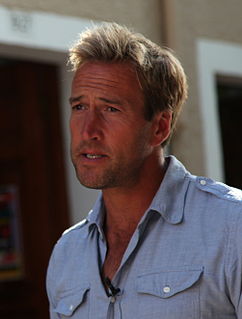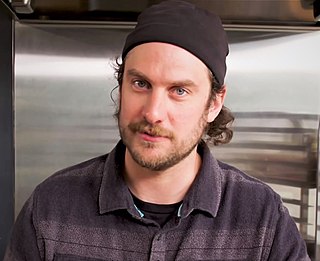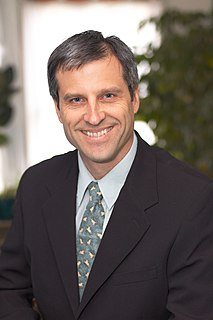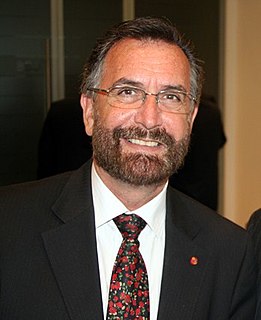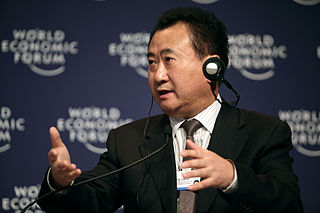Top 1200 Meat Consumption Quotes & Sayings
Explore popular Meat Consumption quotes.
Last updated on April 14, 2025.
I shall argue that it is the capital stock from which we derive satisfaction, not from the additions to it (production) or the subtractions from it (consumption): that consumption, far from being a desideratum, is a deplorable property of the capital stock which necessitates the equally deplorable activity of production: and that the objective of economic policy should not be to maximize consumption or production, but rather to minimize it, i.e. to enable us to maintain our capital stock with as little consumption or production as possible.
I'm a vegetarian. You're a what? I don't eat meat. How can you not eat meat? I just don't. He says he does not eat meat. What? No meat? No meat. Steak? No... Chickens! No... And what about the sausage? No, no sausage, no meat! He says he does not eat any meat. Not even sausage? I know! What is wrong with him? What is wrong with you? Nothing, I just don't eat meat!
Current lifestyles and consumption patterns of the affluent middle class…involving high meat intake, consumption of large amounts of frozen and convenience foods, ownership of motor vehicles, golf courses, small electric appliances, home and work place air-conditioning, and suburban housing are not sustainable...
The current treatment of animals in the livestock trade definitely renders the consumption of meat as halachically unacceptable as the product of illegitimate means. ... As it is halachically prohibited to harm oneself and as healthy, nutritious vegetarian alternatives are easily available, meat consumption has become halachically unjustifiable.
In most of the affluent populations I have considered, the prevalence of coronary disease is associated with the consumption of sugar. Since sugar consumption is only one of a number of indices of wealth, the same sort of association (to coronary disease) exists with fat consumption, cigarette smoking, cars.
To avoid causing terror to living beings, let the disciple refrain from eating meat... the food of the wise is that which is consumed by the sadhus [holymen]; it does not consist of meat... There may be some foolish people in the future who will say that I permitted meat-eating and that I partook of meat myself, but... meat-eating I have not permitted to anyone, I do not permit, I will not permit meat-eating in any form, in any manner and in any place; it is unconditionally prohibited for all.
Raising crops to feed animals for human consumption requires a lot of land. It takes eight or nine cows a year to feed one average meat eater; each cow eats one acre of green plants, soybeans and corn per year; so it takes eight or nine acres of plants a year to feed one meat eater, compared with only half an acre to feed one vegetarian.
Take pandemics. There could easily be a severe pandemic. A lot of that comes from something we don't pay much attention to: Eating meat. The meat production industry, the industrial production of meat, uses an immense amount of antibiotics.We're now running out of antibiotics that deal with the threat of rapidly mutating bacteria. A lot of that just comes from the meat production industry. Well, do we worry about it? Well, we ought to be.
Developed and benefited from the unsustainable patterns of production and consumption which have produced our present dilemma. It is clear that current lifestyles and consumption patterns of the affluent middle class-involving high meat intake, consumption of large amounts of frozen and convenience foods, use of fossil fuels, appliances, home and work-place air-conditioning, and suburban housing-are not sustainable. A shift is necessary toward lifestyles less geared to environmentally damaging consumption patterns.
I must say that in my own mind, I think what's important is for us, as a society, to radically reduce the consumption of meat. This is more important than some fraction of us become moral saints and become vegetarians so it would be much better if we would reduce meat consumption by three quarters of each of us as an individuals would only eat one-quarter as much meat as we do now then that half of the population should become vegetarian. We should see this as a collective challenge rather than an issue about individual, moral period.
We believe in the Three Rs - reducing the consumption of meat and other animal-based foods; refining the diet by eating products only from methods of production, transport, and slaughter that minimize pain and distress; and replacing meat and other animal-based foods in the diet with plant-based foods.
While self-interest arising from the enjoyment of meat eating is obviously one reason for its entrenchment, and inertia another, a process of language usage engulfs discussions about meat by constructing the discourse in such a way that these issues need never be addressed. Language distances us from the reality of meat eating, thus reinforcing the symbolic meaning of meat eating, a symbolic meaning that is intrinsically patriarchal and male-oriented. Meat becomes a symbol for what is not seen but is always there--patriarchal control of animals and of language.
Whole ideology of consumption almost to the point of religion. Whether it's the consumption of entertainment or the consumption around buying things, we're so caught up with our appetites that we don't have a clear distinction about what we need and what we just want. Plus, the decline of trade unions is a factor. When you have powerful unions, you have a working class that is politicized.
The illusion that consumption - and its correlative, income - is desirable probably stems from too great preoccupation with what Knight calls "one-use goods," such as food and fuel, where the utilization and consumption of the good are tightly bound together in a single act or event. ... any economy in the consumption of fuel that enables us to maintain warmth or to generate power with lessened consumption again leaves us better off. ... there is no great value in consumption itself.
Animals raised on corn produce fattier meat, but it's not just that it's fattier, it's the kinds of fats. Corn-fed beef produces lots of saturated fats. So that the heart disease we associate with eating meat is really a problem with corn-fed meat. If you eat grass-fed beef, it has much more of the nutritional profile of the wild meat.

